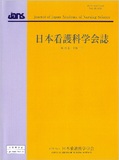Japanese
English
- 販売していません
- Abstract 文献概要
- 参考文献 Reference
要旨
目的:本研究の目的は,死別前から死別後を含めて,在宅で妻を介護した夫の看取りの特徴と訪問看護師の支援について明らかにすることである.
方法:在宅で妻を介護した夫を妻の生前からケアした経験のある訪問看護師9名にインタビューを行い,その内容をグラウンデッド・セオリー・アプローチを参考に分析を行った.
結果:その結果,在宅で妻を介護した夫の看取りの特徴は,【夫婦のありよう】【非日常的生活の継続】【つながりの薄さ】【抑え込まれた悲しみ】の4カテゴリ,夫への訪問看護師の支援は,【非日常的生活の中での看取りを支える】【抑え込まれた悲しみからの回復を促す】の2カテゴリで構成された.
結論:特に妻との死別後,夫が悲嘆から回復し,生活再建に取り組むようになるためには長い夫婦生活の中で育まれた【夫婦のありよう】が重要と考えられ,訪問看護師は看取りの時期に【夫婦のありよう】に添いながら,夫婦が望む看取りのあり方を実現できるように支援していくことが必要と示唆された.
Purpose: Characteristics of end-of-life care provided at home by husbands to their wives and support provided by visiting nurses before and after the wives' death were investigated.
Method: Interviews were conducted with visiting nurses (N = 9) that had experience of supporting such husbands since the time when the wives were alive. The content of the interviews was analyzed using the Grounded Theory Approach.
Results: The results indicated that characteristics of end-of-life care provided by husbands composed of the following categories: “condition of marital life,” “continuing the unusual life,” “thinness of the connection,” and “grief suppressed.” Support provided by visiting nurses to husbands consisted of two categories; “supporting end-of-life care during the unusual life” and “facilitating recovery from grief suppressed.”
Conclusion: Notably, the long-term conditions of marital life were considered important for husbands' recovery from grief and rebuilding their life. It is suggested that visiting nurses should provide support in the period of end-of-life care so that the couples can realize desirable methods of end-of-life care according to the condition of their marital life.
Copyright © 2020, Japan Academy of Nursing Science. All rights reserved.


